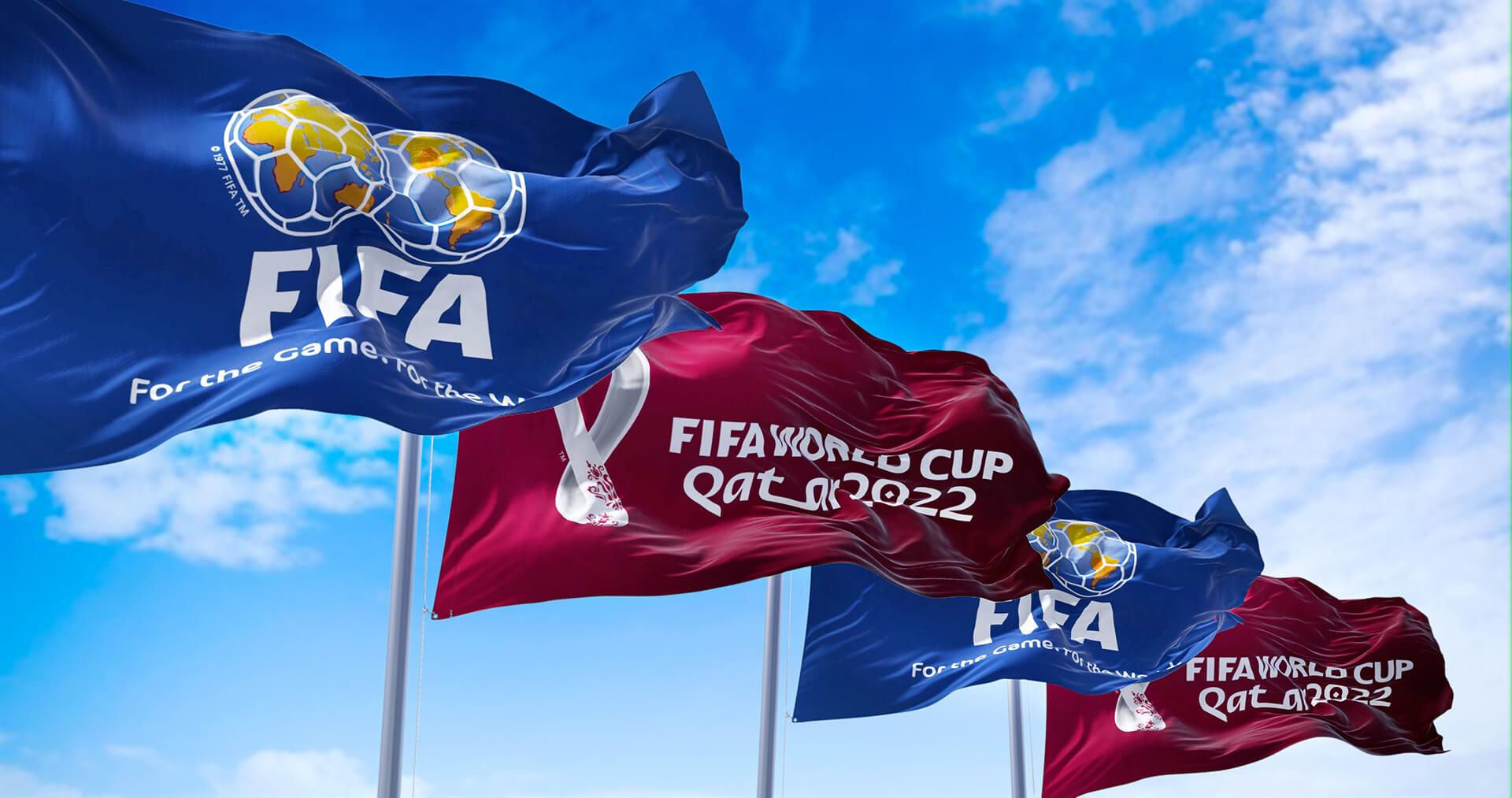The Professional Golfers’ Association (PGA) and LIV Golf announced this month that they will merge, shocking not only the world of sports but also the broadcast media and corporate worlds. Heretofore, the latter have been the biggest investors and buyers in professional golf’s lucrative market of tournaments, gear, player endorsements and advertising; no longer so, thanks to one not-so-surprising new entrant to the sport, the Saudi sovereign wealth fund, aka the Public Investment Fund (PIF).
The merger is likely to have significant implications for the game of golf and the way it’s played. More importantly, the merger says much more about Saudi Arabia itself and its rising profile in today’s increasingly money-driven world.
Always about the money
Firstly: what about golf? To be sure, money has always been a big factor in professional golf. Purses in the major tournaments have grown steadily as the sport garnered increasing public interest and more followers. Much of that can be attributed to rising television and streaming audiences around the world. Today, those purses can top $20 million, with the winner taking home as much as $4 million in some tournaments. Saudi Arabia saw the opportunity to get in on the action. Armed with more than $700 billion in investable assets and seizing the opportunity to help remake its image in the world (more on that later), Saudi Arabia had its PIF assemble some of the sports’ greatest names to organize a competitor to the PGA, dubbed LIV Golf, in 2021. The PGA and its members, including such luminaries as Tiger Woods, fulminated over the new league and the generous use of its funds—it allegedly paid golfing great Phil Mickelson $200 million to join LIV—to disrupt and corrupt the legendary game.
But really, how generous could the Saudis be? PIF and the other LIV stakeholders will invest an estimated $3 billion in the new merged entity.
The PGA leadership and those golfers who had stuck with the PGA out of loyalty were left dumbfounded and marginalized after the announcement. Following LIV’s entry into professional golf, they had gone on media and even before Congress and the golfing public to rail against the upstart golf league. After all, LIV’s principal backer, Saudi Arabia, figures prominently on just about everyone’s list of worst human rights offenders, including in the US State Department’s Human Rights Report. The latter’s executive summary lists over 15 areas in which major abuses have occurred. And that’s just the executive summary, which doesn’t list the 2018 gangland-style execution of Washington Post journalist Jamal Khashoggi in the Saudi consulate in Istanbul. The hit was likely ordered by Saudi Crown Prince Mohammad bin Salman.
The PGA banned from its tournaments those players who defected to the new league. It increased the purses of its major tournaments and stepped up its lobbying campaign wherever and whenever it could. In the end, though, it wasn’t going to be able to compete with the deep pockets of the Saudis. Their PIF, rumored to be the world’s second-largest, is fueled by the kingdom’s massive oil reserves and uber-efficient Saudi Aramco’s ability to manage their exploitation well into the next century. The PIF is rich and will only get richer.
What are they going to do with all that money?
They’re looking to diversify. Sports offer the perfect opportunity. They are popular everywhere and earn lots of money in many different ways. The potential to earn even more is obvious. Enthusiasts around the world have stood by and watched money take over and run—some would argue, ruin—sports. FIFA (the global governing body for association football), automobile racing, tennis, America’s “big four” sports (football, baseball, basketball and hockey), cricket, and even the Olympics are synonymous with big—no, make that astronomically immense—amounts of money.
Why should golf be any different? There has, after all, always been big money in golf. But the PGA and its European counterpart, DP World, ran a monopoly on professional tournaments. As a member, a golfer could compete. Refuse membership and be prepared to wander in golfing obscurity; otherwise capable golfers were relegated to duffer status. Busting up a monopoly is tough. It requires impossibly large sums of money. Thanks to the Saudis’ PIF and an aggressive investment strategy, the impossible became merely difficult and then, this month, very possible.
Congress may now be inserting itself into the matter. That’s predictable; the US legislature seems to fly into outrage over almost anything Saudi Arabia. Members are calling for investigations and hearings over fears of undue Saudi influence in a “cherished American institution.” Never mind the game was invented in Scotland and is played all over the world, though most of the big-prize tournaments take place in the US. And even though many a past American president has enjoyed the game, it would take a colossal leap in logic to assert that the Saudi-backed merger threatens US national security. Look, however, for the PGA in its new guise to lose its tax-exempt status. American taxpayers would be happy with that.
The game of golf at the professional level is forever changed. For that, players, fans, gear manufacturers, advertisers, broadcasters and thousands of golfing clubs around the world can thank Mohammed bin Sultan.
MbS still blazing his own path
MbS, as he is commonly known, is unlike any Saudi ruler since the kingdom’s legendary founder, King Abdul Aziz al Saud. To be precise, he isn’t yet the kingdom’s de jure ruler, only de facto, while his father, King Salman, still sits on the throne. Setting aside his nation’s incontrovertibly abysmal human rights record, the youthful crown prince launched his rule by first consolidating his power throughout the kingdom. The military, the security and intelligence services, and all its economic arms, including Saudi Aramco, the central bank, et al. are now headed by him or his loyalists. He severely reined in the power of Saudi Arabia’s previously powerful clerical class, including significantly reducing the authority and presence of the muttawa, or religious police. Distribution of power among the senior royals, as had been done ever since Abdul Aziz, ended with MbS. He is now the undisputed and effectively omnipotent ruler of the kingdom.
Having consolidated his rule, the crown prince quickly set out to make his nation a significant player in the world. He is doing so by leveraging the one asset it possesses in abundance, oil, and the steady flow of income it produces. His Vision 2030 plan set a high bar for the kingdom with investment expanding into high tech, solar power, finance and banking, entertainment and sports. He is even building a multi-billion-dollar megacity of the future, NEOM, in the kingdom’s northwest along the Red Sea.
Uber, SoftBank, BlackRock, English Premier League and LIV Golf are all testimony to his success. Additionally, the kingdom will host the FIFA Club World Cup later this year and the Asian Winter Olympic Games in 2029. Last month, the city of Jeddah was announced as one of the preliminary racing venues for the America’s Cup Race, scheduled for Barcelona next year. The kingdom is doubtlessly setting its sights on hosting the World Cup and Summer Olympics at some point in the next 20–25 years. The PGA-DP World-LIV Golf merger now ensures the kingdom’s leadership role in a major international sport.
Investing in ever-popular sports also enables the kingdom to repair its much-damaged reputation from MbS’s early years of serial human rights abuses, though many of those existed well before he came into prominence and still continue. It’s called sportswashing. The PGA, which had frequently called attention to that record in the two years it went head-to-head with LIV Golf, now has adopted a much quieter and more collaborative tone. Sportswashing, i.e. buying off one’s critics by buying sports teams and leagues, works.
Striking while the wells still pump
Why this investment onslaught? For starters, the kingdom is well aware it sits on a resource of finite utility as the world, and especially the developed world, advances expeditiously toward clean energy. Diversification makes sound financial sense. Perhaps equally important is MbS’s ambition to make his nation a true global power, not a military power but an economic power. It’s already a member of the exclusive G-20, but the crown prince may be setting his sights even higher. The kingdom’s exorbitant wealth provides it with influence even the US and China must envy. If there is any question of that, consider the parade of major foreign leaders to the country in just the last few years: US President Joe Biden (2022), Chinese President Xi Jinping (2022), Japanese Prime Minister Fumio Kishida (2022), German Chancellor Olaf Scholz (2022), Indian Prime Minister Narendra Modi (2019), and Russian President Vladimir Putin (2019). Saudi Arabia is on the map of the great and rising powers (and perhaps the declining ones, too).
So, say the kingdom rises to some major global status. Then what? It is already one of the two most influential countries of the Middle East, along with Iran. Lacking both population and military might, it faces insurmountable obstacles to attain power status equal, say, to America or China. In fact, it must rely on unwritten security assurances from the US—now on shaky grounds, by the way—for its defense.
One might have thought that it would seek to hitch itself to US power both in the region and around the world. MbS, however, seems determined to blaze his own path. Moreover, the decline in US influence in the region as it focuses on great power rivalries with China and Russia bears his reasoning out.
The Saudi-led PGA-LIV merger presents an interesting case study, however, of how the kingdom might make itself a unique global player. Its extraordinary wealth provides it with an inestimable opportunity for insinuating itself into just about any human economic or commercial endeavor. Golf is but one such endeavor in a largely geostrategically insignificant area, though it does command a considerable following around the world. There is no business or nation that does not covet the kingdom’s considerable investment funds in one respect or another. So, in one sense, then, the kingdom already has genuine power.
If money indeed makes the world go round, then count on Saudi Arabia to be one of the globe’s spinners for a long time.
[Anton Schauble edited this piece.]
The views expressed in this article are the author’s own and do not necessarily reflect Fair Observer’s editorial policy.
For more than 10 years, Fair Observer has been free, fair and independent. No billionaire owns us, no advertisers control us. We are a reader-supported nonprofit. Unlike many other publications, we keep our content free for readers regardless of where they live or whether they can afford to pay. We have no paywalls and no ads.
In the post-truth era of fake news, echo chambers and filter bubbles, we publish a plurality of perspectives from around the world. Anyone can publish with us, but everyone goes through a rigorous editorial process. So, you get fact-checked, well-reasoned content instead of noise.
We publish 2,500+ voices from 90+ countries. We also conduct education and training programs
on subjects ranging from digital media and journalism to writing and critical thinking. This
doesn’t come cheap. Servers, editors, trainers and web developers cost
money.
Please consider supporting us on a regular basis as a recurring donor or a
sustaining member.
Support Fair Observer
We rely on your support for our independence, diversity and quality.
Will you support FO’s journalism?
We rely on your support for our independence, diversity and quality.









